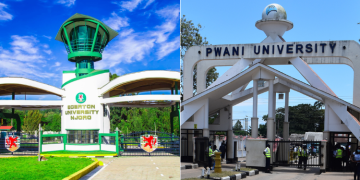A food business in Kenya, whether it’s a restaurant, café, catering service, or food kiosk, can be a rewarding venture.
However, before you serve your first customer, there are several legal requirements you must meet to ensure compliance with national and county laws.
The Kenya Investment Authority (KenInvest) outlines these requirements clearly, and understanding them is important for avoiding penalties and delays in launching your business.
Why Licensing Matters
Licenses and permits ensure adherence to food safety and public health standards.
Additionally, they help protect your business from legal disputes and build credibility and trust with customers.
A license will also allow you to operate without the risk of closure by county officials.
Kenya has streamlined the licensing process through the Unified Business Permit, which consolidates multiple approvals into one application.
Also Read: How to Apply for a Firearm License in Kenya: A Step-by-Step Guide
How to Apply for a License
Step 1: Register Your Business
Before applying for any permits, you must first register your business.
Visit the eCitizen portal to register your business name or company and obtain a Kenya Revenue Authority (KRA) PIN certificate for your business entity.
However, foreign-owned companies must meet an asset base requirement of KSh 10 million.
Step 2: Apply for a Unified Business Permit
Previously called the Single Business Permit, this license is issued by the respective county government.
It covers:
- A trading license.
- A fire clearance certificate.
- An advertising signage license.
- A health certificate and food hygiene license (for food-related businesses).
As an applicant, you will need to present your business registration certificate, a KRA PIN certificate, and your National ID (or passport for foreigners).
The permit is valid for one year (January–December) and must be renewed annually.
Step 3: Health & Food Hygiene Permits
For any business handling food or beverages, public health certification is mandatory.
The Public Health Department inspects your premises to ensure they meet hygiene standards.
Once approved, you will receive a Health Clearance Certificate and Food Hygiene License.
Employees who handle food must also obtain a Food Handler’s Health Certificate after a medical check-up.
Also Read: Soaring Fast Food Prices Are Causing Adults to Switch to Kids’ Meals, Study Says
Step 4: Fire Safety Certification
Every business in Kenya must have a Fire Safety Certificate.
You will need basic fire safety equipment, such as fire extinguishers, and the county fire department will inspect your premises before issuing the certificate.
The certificate is renewable annually.
Step 5: Additional Licenses
Depending on the nature of your business, you may need extra approvals, including;
- Restaurant License – Restaurants must register with the Tourism Regulatory Authority (TRA) under the Tourism Act, 2011.
- Music Society License – Required if you play music at your premises.
- Advertising Signage License – For businesses displaying a signboard (300mm by 600mm or larger).
Costs of Getting a Restaurant License
Restaurant licensing fees vary based on annual gross receipts.
According to KenInvest, applicants are required to pay Ksh8,500 for a license for restaurants with annual receipts under Ksh3,000,000.
Ksh11,000 – 31,000 is charged for restaurants with receipts ranging from Ksh3,000,000 to Ksh5,500,000.
A charge of Ksh46,000+ is applied to restaurants with receipts exceeding Ksh6,000,000.
An application processing fee of Ksh1,000 applies across all categories.
Before final approval, your premises will undergo inspections to verify food handlers’ certificates, health clearance certificates, fire safety compliance, and employee records.
Once you meet these requirements, you will receive your restaurant license, which can now be completed online.
Follow our WhatsApp Channel and X Account for real-time news updates.


















































![Senator Allan Chesang And Chanelle Kittony Wed In A Colourful Ceremony [Photos] Trans Nzoia Senator Allan Chesang With Channelle Kittony/Oscar Sudi]( https://thekenyatimescdn-ese7d3e7ghdnbfa9.z01.azurefd.net/prodimages/uploads/2025/11/Trans-Nzoia-Senator-Allan-Chesang-with-Channelle-KittonyOscar-Sudi-360x180.png)
























